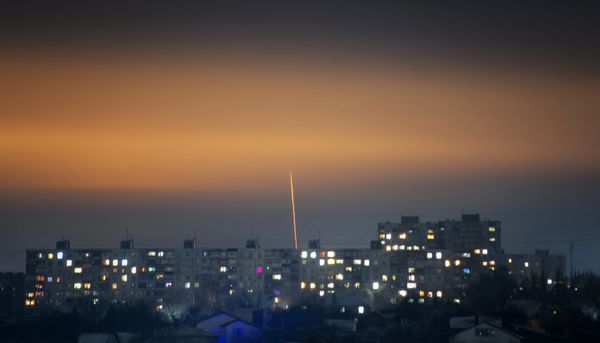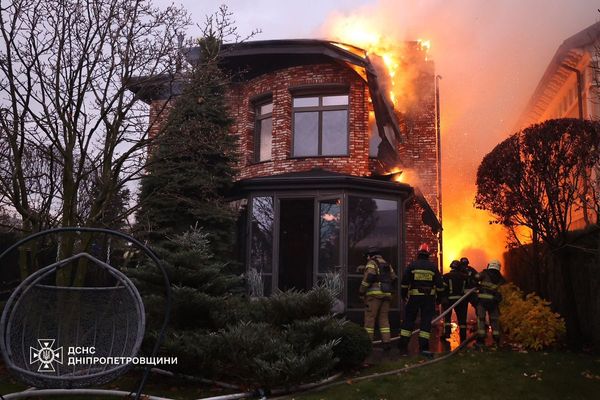
Beirut (AFP) - An Israeli air strike killed early Sunday 15 people including two Syrian civilians and badly damaged a building in a Damascus district housing state security agencies, a war monitor said.
The strike targeted a meeting that included Syrian regime officers and was "the deadliest Israeli attack in the Syrian capital" since the civil war began, said Rami Abdel Rahman of the Syrian Observatory for Human Rights.
The overnight strike cratered a road and wrecked the adjacent 10-storey building in the Kafr Sousa district, which is home to senior state officials and Syrian intelligence headquarters, said the Britain-based Observatory.
A woman was also killed in the Mazraa district, possibly hit when Syrian anti-aircraft munitions crashed down, it added.
It was not immediately clear who was the intended target of the strike, which AFP correspondents reported shook Damascus and left a gaping hole in the street.
Other missiles overnight hit a warehouse used by pro-regime Iranian and Hezbollah fighters near Damascus, said the Observatory, which relies on a wide network of sources inside Syria.
Iranian news agency Tasnim said "no Iranian was harmed", adding that the strikes hit "exactly the spot" where Hezbollah's top commander Imad Mughniyeh was killed in a 2008 car bombing that the Lebanese Shiite group blamed on Israel.
Syria's defence ministry gave an initial death toll of five, including one soldier, and 15 wounded civilians, some in critical condition.
Shortly after midnight "the Israeli enemy carried out an aerial aggression from the direction of the occupied Golan Heights targeting several areas in Damascus and its vicinity, including residential neighbourhoods", a statement said.
Defence forces "shot down several missiles", it added.
Historic buildings near the medieval Damascus citadel were also "severely damaged", said the head of the Syrian antiquities department, Nazir Awad, blaming "an Israeli missile".
Syrian Foreign Minister Faisal Mekdad said Sunday that the strike was "a crime against humanity, especially as Syria races against time to face the disastrous consequences of the devastating earthquake".
Syria is currently seeking to recover from the February 6 earthquake, which did not affect Damascus but killed more than 44,000 people across the country's north and west, and southern Turkey.
An Israeli military spokesperson said: "Israel does not comment on reports in foreign media."
Syrian government ally Russia condemned the strike, with foreign ministry spokeswoman Maria Zakharova also urging Israel "to put an end to armed provocations" against Damascus that could endanger "the entire region".
More than decade of war
Israel, during more than a decade of war in Syria, has carried out hundreds of air strikes against its neighbour, primarily targeting the army, Iranian forces and Hezbollah, allies of the Damascus regime.
"We will not allow Iran to obtain nuclear weapons and we will not allow it to entrench on our northern border," Prime Minister Benjamin Netanyahu told Sunday's cabinet meeting, without referring directly to the Damascus strike.
In Tehran, foreign ministry spokesman Nasser Kanani "strongly condemned the attacks of the Zionist regime against targets in Damascus and its suburbs, including against certain residential buildings".
The raids had left "a number of innocent Syrian citizens" dead and injured, he said.
The Gaza-based Palestinian militant groups Hamas and Islamic Jihad also denounced the strikes.
An Islamic Jihad official told AFP that none of its members in Damascus were killed or wounded, requesting anonymity as he was not authorised to speak to the media.
The Syrian conflict started in 2011 with the brutal repression of peaceful protests, and escalated to pull in multiple foreign powers and global jihadists.
Nearly half a million people have been killed, and the conflict has forced around half of Syria's pre-war population from their homes.
President Bashar al-Assad's regime receives military support from Russia as well as from Iran and Tehran-allied armed Shiite groups, including Hezbollah, which are declared enemies of Israel.
Sunday's attack comes more than a month after an Israeli missile strike hit Damascus International Airport, killing four people, including two soldiers.
The January 2 strike hit positions of Hezbollah and pro-Iranian groups, including a weapons warehouse, the Observatory said.







